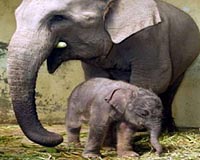| . |  |
. |
Washington DC (SPX) Jul 03, 2009 More than 40 percent of a sample of amphibians, reptiles, mammals, and birds that are restricted to mangrove ecosystems are globally threatened with extinction, according to an assessment published in the July/August issue of BioScience. The study, by David A. Luther of the University of Maryland and Russell Greenberg of the Smithsonian Migratory Bird Center, was based on an extensive literature search and expert consultations. The conclusions emphasize the vulnerability of animals that are dependent on a habitat rapidly being lost or degraded through coastal development, overexploitation, pollution, and changes in sea level and salinity. Mangroves, which are salt-tolerant woody plants concentrated along coastal margins, generally in warm regions, have long been known to support many species of animals. Hundreds of vertebrates are sometimes found in mangroves, but Luther and Greenberg concentrated on the 69 terrestrial vertebrate species and subspecies that seem restricted to mangroves: 48 birds, 14 reptiles, 6 mammals, and 1 amphibian. These include several species with striking adaptations, such as specialized glands to excrete salt. The ground foragers among them feed primarily on crabs, but many of the birds feed on insects. For unclear reasons, mangrove-restricted species and subspecies are concentrated in Asia and Australia. Between the early 1980s and 2001, between 19 and 35 percent of the world's mangrove forest area was lost. At this rate of loss--about 2 percent each year--mangroves could be extinct in 100 years. Only 27 of the terrestrial vertebrates that are dependent on mangroves have been assessed by the IUCN (International Union for the Conservation of Nature), and 13 of those are classified as threatened on the IUCN Red List, Luther and Greenberg report. They urge research aimed at predicting how continuing changes to mangrove forests are likely to affect the species found there: such information could guide attempts to conserve these specialized ecosystems. Share This Article With Planet Earth
Related Links American Institute of Biological Sciences Darwin Today At TerraDaily.com
 Another endangered elephant dies in Indonesia: WWF
Another endangered elephant dies in Indonesia: WWFJakarta (AFP) July 2, 2009 An elephant calf has starved to death in Indonesia, the eighth endangered Sumatran elephant to have died in the wild since May, environmental group WWF said Thursday. WWF spokeswoman Syamsidar said the calf was believed to be the offspring of an elephant which was poisoned to death recently in the latest sign of growing conflict between animals and people over land and forest resources. ... read more |
|
| The content herein, unless otherwise known to be public domain, are Copyright 1995-2009 - SpaceDaily. AFP and UPI Wire Stories are copyright Agence France-Presse and United Press International. ESA Portal Reports are copyright European Space Agency. All NASA sourced material is public domain. Additional copyrights may apply in whole or part to other bona fide parties. Advertising does not imply endorsement,agreement or approval of any opinions, statements or information provided by SpaceDaily on any Web page published or hosted by SpaceDaily. Privacy Statement |